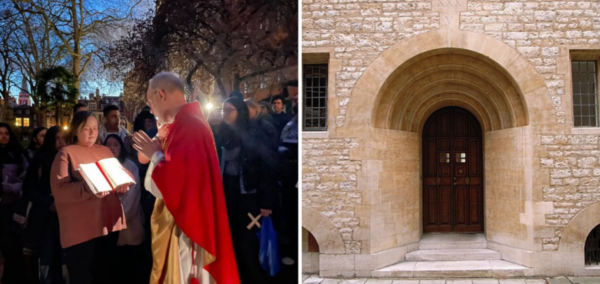
‘Everything is more rushed’: Student opinions on Bristol Uni’s new teaching schedule
‘I just have to get through the year’
In February of 2024, Bristol University told its students the term dates would be changing. Term started earlier and Christmas would be deadline-free. On paper, it sounded perfect, but did it actually help to improve student stress and workload?
The initial email from the university described concerns over students and staff feeling “overloaded” and the need for “less activity during vacation periods”, but these changes were met with mixed reviews. The new dates were intended to give students time to relax over Christmas but they created an extra intense exam season at the end of term one. Lots of students and staff members feeling under pressure to deliver the same amount of assessments as years prior, this time in a much smaller window.
We chatted with some students to see how the new term dates affected them, both before and after Christmas.

Before
In TB1, Jess*, a fourth year chemistry undergrad, explained how the change meant that Bristol students’ holidays were now not in line with holidays at other universities. She said: “I appreciate that they think they made it better, but actually there’s something to say about no longer being on the same schedule as every other major UK university, which they clearly didn’t consider.”
Some students claimed the new term dates made it harder to align with friends at other universities, who have different vacation periods which are more similar to the previous structure of the academic year at Bristol Uni. In lots of universities right now, students are finishing up with January exams, whereas Bristol students have been straight back to classes, making it an intense start to the year.
Most Read
Another student expressed similar concerns. Ollie*, a fourth year modern languages student, said: “I think that by changing term dates, everything is more rushed, everything feels really condensed and I don’t feel like I’m working to a good quality because I just don’t have the time.”
The number of assessments over TB1 was doubled to avoid having to write any essays or revise over Christmas, making the workload much heavier. Students across the board were left feeling as though they just had to get through their assessments one after the other, instead of being able to work hard for them.
Not only was the workload more intense, but students were writing essays for modules they hadn’t yet finished, instead of being able to wait until the end of the module to start writing over Christmas, ready for a January hand-in. Learning a module while simultaneously writing the assessment for it proved to be a stressful experience.
Before the Christmas holidays, it was clear many people seemed dissatisfied with the term restructuring and their increased workload in the lead up to the break, but after a whole month off, how do students feel about the changes?

After
In TB2, after a long Christmas holiday, Ollie, interviewed before said: “It was really nice to have a break from uni work over Christmas but it was also really necessary because I was so burnt out from TB1 that I needed the break more than I did in other years.”
Lots of students do feel more refreshed and well-rested after the long break after not having to revise for any exams or write an essay from at home. It’s rare for university students to have such a defined period of vacation, often having to use free time for readings or extra work outside of their university hours, so the lack of assessments was a welcome change for students who needed a rest after such a busy first term.
It also allowed students to go home and work over Christmas, earning money to deal with the high living costs of a city like Bristol. They had more time for jobs and social lives instead of working to tight deadlines over the festive period.
However, many students still feel burnt out despite the extended break, saying they don’t feel ready for the new term and maybe even feel disappointed with their performance in the TB1 assessments because they had so many to juggle.
The uni seems to think they’re helping students out with these changes, but many are wondering who it was that made these decisions. When even teaching staff are unhappy with the changes, it looks like the decision makers are once again the least affected by such changes. If student opinion were to be taken into consideration, maybe the changes would be revoked or assessments would be adjusted to accommodate the new term dates instead of squeezing the same workload into a shorter period of time.
In response to these opinions Dr Mark Allinson, Associate pro vice-chancellor for Learning and Teaching at the University of Bristol, said: “Improving the structure of our academic year was proposed by our staff and students and the new structure prioritises their wellbeing and overall university experience.
“The structure was created in constant collaboration with academics, support staff, students and Bristol SU and we are pleased that so many have welcomed it.
“We also understand that the change affects people in different ways and we welcome all feedback as we continue to improve.”






















